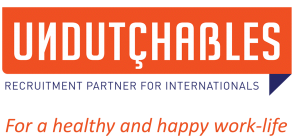
Nobody likes to be sick and not being able to go about your daily routines because of it. It is good to know, however, that the Netherlands has laws that protect you, in case you are employed and fall ill.
and not being able to go about your daily routines because of it. It is good to know, however, that the Netherlands has laws that protect you, in case you are employed and fall ill.
Call your employer
When you are employed and cannot work because you are ill or have an injury, you should let your employer know by calling in sick. Your employer should have provided you with the rules and practicalities of calling in sick. You may also find those in your employment contract. If you are working through a temping agency, you may have to inform both the agency and the company where you are working.
There are some general rules that you should be aware of. When calling in sick you are not obliged to inform your employer about your complaints, and your employer is not allowed to ask you for medical information. However, the employer is permitted to ask if your illness or injury is caused by an accident at work.
Company doctor
In the Netherlands a GP (‘huisarts’) will not provide you with a statement that you are unfit to work. This is reserved to the company doctor (‘bedrijfsarts’) that the employer may bring in. The company doctor advises the employer on how and when you can go back to work. The company doctor may share the following with your employer:
- Whether or not you are sick
- How long the illness is expected to last
- The degree of incapacity to work
The company doctor is not allowed to share with your employer any medical information, such as the diagnosis and treatment of your illness.
You have to follow the instructions of the company physician. If you disagree with this doctor’s judgement you may get a second opinion.
Reintegration
If you are not able to (fully) return to your old position the employer will develop a reintegration (‘re-integratie’) plan. The employer will assess together with you, if and how you are able to return in your own job. If that is not possible, the employer needs to look for other appropriate work within the company, or if need be, outside the company (re-integration second track). The plan is a written agreement between you and your employer.
Getting paid during sick leave
Usually, your employer has to pay at least 70% of your wages while you are ill. If you have a fixed contract the employer must continue this payment for 2 years. If you work through an employment agency or as a freelancer, you may not be entitled to pay if you fall ill.
You don’t lose holidays if you are sick. Even if you fall ill before or during a planned holiday. However, your employment contract may stipulate that you have to surrender holidays that are in excess of statutory holidays that you are entitled to.
If you have questions about your legal rights and obligations in case of illness, call ‘het Juridisch Loket’ , a service by the Dutch government.

